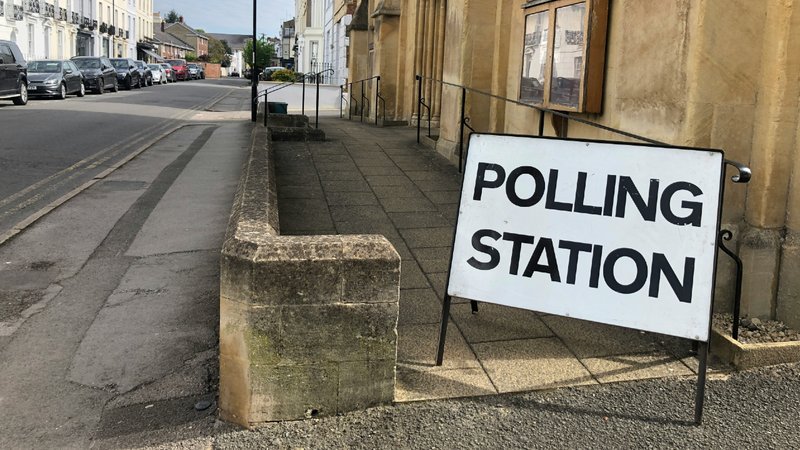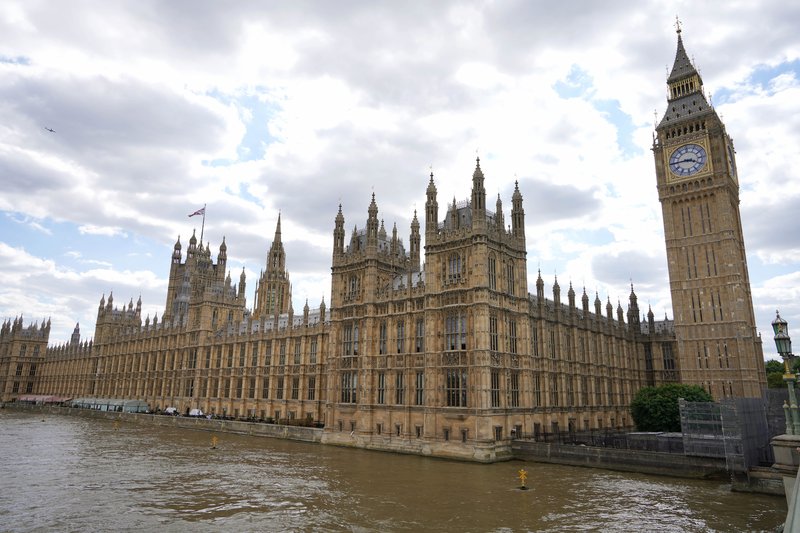The Elections Bill: an opportunity to protect our democracy from misinformation and disinformation
Misinformation and disinformation are serious and growing threats to democracy – but the UK’s laws are not fit for purpose in tackling the harms. The government will be introducing an Elections Bill to lower the voting age and make other changes to the electoral system. This is an opportunity to address misinformation and disinformation, strengthen the foundations of our democracy and help restore public trust in politics.
Join 72,953 people who trust us to check the facts
Sign up to get weekly updates on politics, immigration, health and more.
Subscribe to weekly email newsletters from Full Fact for updates on politics, immigration, health and more. Our fact checks are free to read but not to produce, so you will also get occasional emails about fundraising and other ways you can help. You can unsubscribe at any time. For more information about how we use your data see our Privacy Policy.
Recommendations for the Elections Bill
We are calling for the Elections Bill to include the following measures, many of which reflect longstanding calls by regulators, Parliamentary committees, Full Fact and other independent experts:
- Upgrade the Online Safety Act, requiring services to take more responsibility to identify and manage the risks of democratically harmful material on their platforms.
- Stronger rules and regulations to deal with political deepfakes, by updating the offence of making false statements about candidates and requiring campaigners to label political deepfakes.
- A comprehensive, centralised publicly accessible library of political adverts, to increase transparency and accountability for advertising material that seeks to influence voters.
- A regulatory framework to prevent misinformation and disinformation in political advertising, with an independent regulatory committee that is resourced to take action during election periods.
- Transparent and accountable systems for dealing with electoral information incidents, to ensure that the UK responds effectively to incidents that undermine the fairness of an election.
- Increased investigative and enforcement powers for the Electoral Commission, to bolster its ability to undertake its activities, including in relation to social media companies.
For more detail on our proposals, please see our briefing here.
Misinformation and disinformation in the UK’s democratic processes
Concerns have been raised by the Electoral Commission, Parliamentary committees, civil society and academia about the vulnerability of our democratic processes to misinformation and disinformation. Full Fact’s 2025 annual report highlighted that the last general election was dominated by political spin and misinformation narratives on social media, which were then disseminated by political figures.
There is also significant public concern: a survey by the Electoral Commission in 2024 found that misinformation and disinformation are the second highest concern in elections, after media bias.
An Ofcom survey last year points towards a driver of this concern. 60% of respondents saw false or misleading material about the election at least once in the previous week. 56% expressed concern about the impact of deepfakes on the election – but almost half (46%) were not sure whether they had seen one.
As the World Economic Forum identified, the difficulty identifying AI-generated false or misleading content, and the automation and expansion of disinformation campaigns, make it increasingly hard to know where to turn for true information. This corrodes our information environment, undermining trust in credible sources and informed political debate.

The Electoral Commission’s survey underlined the extent of the crisis:
- 87% of people thought misinformation and disinformation would affect how people vote in the election.
- The proportion of people who encountered a deepfake has increased significantly: 43% saw a deepfake photo and 42% a deepfake video. In the previous year, 20% saw any kind of deepfake.
- 77% often encounter misinformation presented as news related to politics on social media.
- The proportion of people who believe they can judge the reliability of online content dropped from 59% in 2022 to 53% in 2024.
Despite these stark findings, three quarters (76%) of people do not think enough is being done to tackle misinformation and disinformation in elections, and only 5% think sufficient action is being taken.
There is a corresponding crisis of trust in our political system. The proportion of people who trusted politicians to tell the truth in 2023 was the lowest since the Ipsos Veracity Index began in 1983. The British Social Attitudes 2025 survey revealed that just 5% of people trust politicians to always or mostly tell the truth in a tight corner.
This undermines the government’s ability to deliver its mandate with legitimacy. As the Labour party’s 2024 manifesto highlighted, the deterioration of trust in politics has resulted in “a crisis of confidence in our political system’s ability to deliver any change.”
A 2024 survey by Royal Holloway, University of London, found that over half (52%) of 16-18 year olds are unhappy with UK democracy. With the Elections Bill due to lower the voting age to 16, it is important that it also addresses low levels of satisfaction with democracy and trust in our political system.
The current legislative framework is inadequate
Despite misinformation being the most encountered type of harm online, repeated warnings from experts about the risks, and the growing crisis of public trust, the UK’s laws do little to protect our democracy from the harms of misinformation and disinformation.
- The Online Safety Act 2023 was watered down by the previous government and does not tackle the harms that misinformation and disinformation can cause to democracy.
- The National Security Act 2023 included a new ‘foreign interference’ offence, but there are practical challenges to enforcement and the law does not address domestic political deepfakes.
- The Elections Act 2022 failed to address misinformation and disinformation in politics or the harms to democracy, and amendments relating to disinformation were rejected.

The government plans to bring forward an Elections Bill after publishing an election strategy paper this summer. It is essential that the Bill includes robust measures to address the joint challenges of misinformation and disinformation in UK democracy and historically low levels of public trust in politics.
The measures proposed by Full Fact would support some of the government’s priorities for the Bill, including preventing foreign influence in UK political finance, tackling harassment and intimidation of MPs and candidates, and facilitating higher levels of engagement in elections for new younger voters.
The health of our democracy is in a critical state – these reforms could help to restore it. Full Fact will be following the Bill as it works through Parliament and calling for an ambitious plan for change.